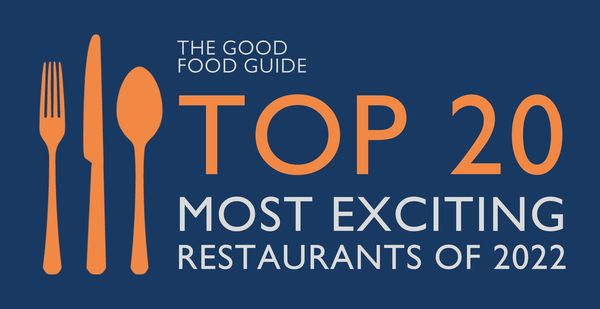The figure waiting for me at Nîmes airport was unmistakable: his features a little craggier than the last time I had seen him, perhaps, his hair a little thinner, but the bow tie and the cigarette were both present and correct. There was a faint smell of pastis in the air, too. Some celebrities feel a constant need to live up to their screen personas: if anything, Keith Floyd toned his down for the telly.
‘It's a bloody nice house, Knotty. You'll love it. And it's got a sodding great wine cellar: only trouble is, there's nothing in it.’ He gestured me towards the passenger door of the Bentley he’d turned up in and hopped rather nimbly into the driver's seat.
‘So,’ he continued, as the monstrous engine started to roar, ‘what I thought we'd do over the next few days is drive around Châteauneuf-du-Pape, Beaumes-de-Venise, Gigondas and the rest. We'll taste a load of wines - you can tell me they smell of bloody apricots or whatever - and then we'll fill up the boot with wine and go for lunch. Does that sound like a plan?’
*
I had first met Floyd when I was cooking in Soho in the late 1980s: he was signing his latest book around the corner and I stood in line to meet him. I saw him again a few years later at his pub in Devon - the Maltsters, in Tuckenhay - carousing with most of Bath Rugby Club's first XV.
My first proper encounter with him, though, was entirely accidental. It was at the bar of the Blue Haven Hotel in Kinsale, County Cork. By then, I had stopped cooking, and was instead writing for a new food magazine called Eat Soup. On a whiskey-fuelled press trip around Ireland, I found Floyd had moved to Kinsale to lick his wounds, having gone spectacularly bust in Devon (not an unusual situation for him).
I was on my second career. Floyd was on his fourth wife, Tess, who was sat with him at the bar. Both were drinking Johnnie Walker Black Label. I offered to top them up - ‘large ones, if you'd be so kind’, I remember him saying - before thrusting the first edition of my new magazine under his nose. We ended up chatting for so long that I missed the press dinner, much to the annoyance of my host.
The next year, Floyd and Tess decamped to the south of Spain, near Estepona, where they lived in ‘a rented bungaloid on a housing estate’ (at least that's what Floyd asked me to call it if anyone connected with the Inland Revenue should ask). In fact, it was a sprawling villa with a pool.
They both drank fiercely in the nearby Penguin bar and had epic arguments. Staying with them was like being one of the party guests in Who's Afraid Of Virginia Woolf?, and any attempt to mediate in their squabbles would simply result in the pair of them turning on the hapless peacemaker like tigers scenting fresh meat.
*
And so to France, where life was much more serene. Provence brought back happy memories for Floyd. A younger, more carefree and entrepreneurial man then, he used to earn a croûte by regularly driving a van full of bric-à-brac from Bristol down to the antique market at L'Isle-sur-la-Sorgue to sell his cargo. He would stock the van with wine, cheese and charcuterie for the return journey. Later, he opened a restaurant in the town, much to the locals' amusement.
The other great attribute of living in Montfrin, a village a few miles south of the Pont du Gard, was that he could chat fluently in the local dialect, a skill earned in the antique market. He would chat happily to the vieux cons (‘old bastards’) at the local bar and they didn't have a clue who he was. In Spain, Floyd had been plagued by expats and tourists asking for photos and autographs; in Montfrin, he was just an eccentric rosbif with a swanky car.
I once asked him whether his programmes had ever been shown on French television. ‘Once, yes,’ he replied, looking a little embarrassed. ‘On the comedy channel.’
That week in Montfrin, Floyd having safely picked me up, proceeded much as the old chef had planned. A ‘heart starter’ at 10.30-ish (this being France, Floyd had swapped whisky for pastis), then a tour of various vignerons, a lot of slurping, and not much spitting. The Bentley, wisely, had been swapped for a more utilitarian Renault estate.
Then a trip to the market, before lunch at a simple restaurant - the Café du Cours in Vacqueyras was a favourite - and back home. Floyd would sleep for a couple of hours while I cooked dinner in his beautiful, high-ceilinged, sunflower-yellow kitchen, its beams strung with bunches of chillies, garlic and lavender – the kind of perfectly Provençal kitchen that, as Floyd pointed out, ‘you will only find in the homes of British or American food writers.' When Floyd would resurface of a late afternoon, or early evening, we would walk to the bar in the village for a sundowner with the vieux cons.
Bars loomed large in our peregrinations, too. And Floyd never objected to a dash of luxury - he had lived at the elegant Hôtel d'Europe in Avignon for several months before moving to Montfrin, for instance, tossing the keys of the Bentley to the concierge every evening. But he always seemed happiest drinking pastis (bien glacé, s'il vous plaît, monsieur) in a scruffy little café, arguing good-humouredly about rugby with a bunch of bleu de travail-clad workmen.
*
And that is how I remember him. Everybody I knew who had worked with Floyd said he could be impossible. His parenting skills were negligible, his drunken rants legendary. Still, under the shade of a plane tree, outside a café with a carafe of local wine and a plate of charcuterie, he could be the best company in the world, talking eloquently about music (he had an encyclopaedic memory of Bob Dylan lyrics), about literature (Saki's witty short stories were favourites), and about his beloved rugby.
And, just occasionally, if he was in an especially good mood, we would talk about food.




